The CMP Review — Week of January 23
January 23, 2023
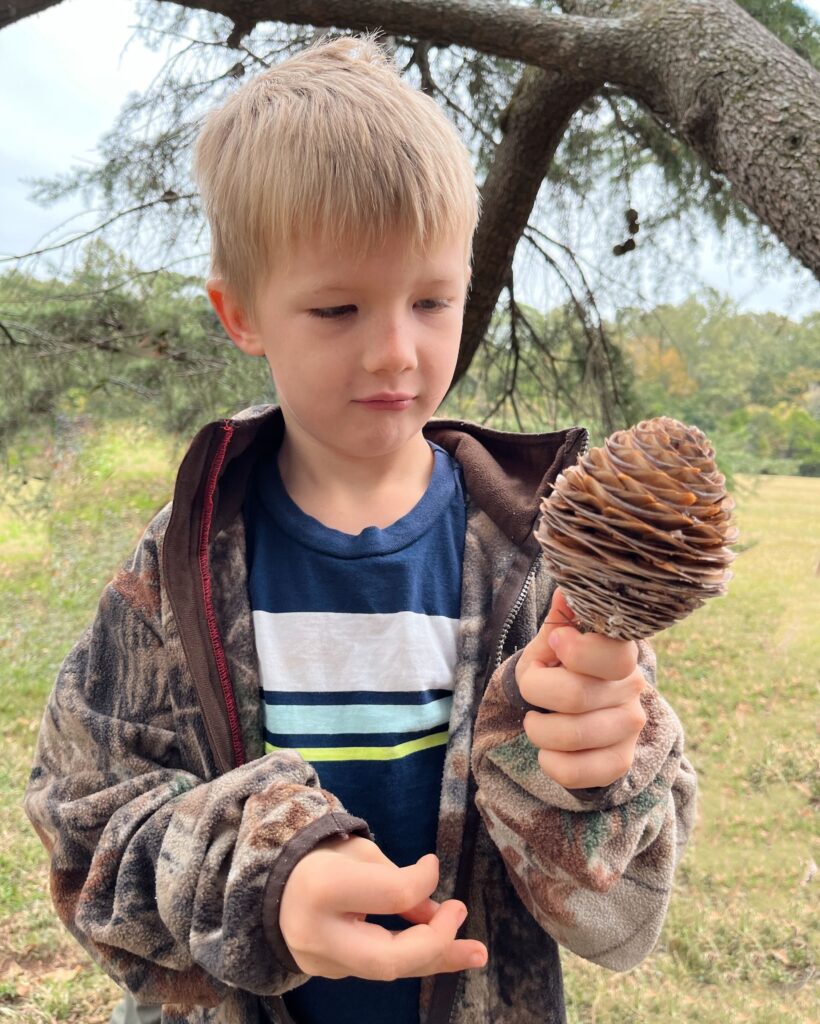
“No two children are alike, no two require the same treatment or method. It is here that we fall back with relief to the stableness of Miss Mason’s teaching. Here are no black and white rules for the regulation of all children, but rather a strong framework of all-embracing principles which will prove a secure foundation for the buildings of experience.” (“The Playroom Leaflet,” PR48, p. 714)
@tessakeath
January 24, 2023
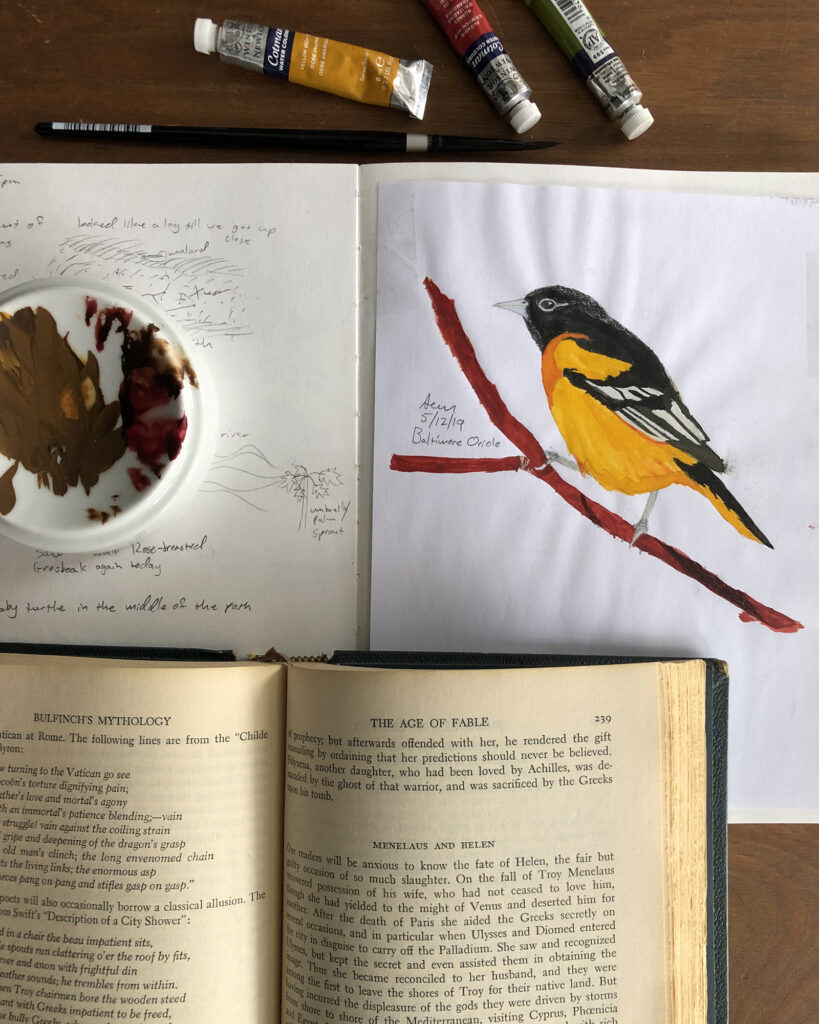
“Why should I use the Charlotte Mason method?” asked the father.
It was the first meeting of the men’s Idyll Challenge. “Will it make my children smarter? Better? Happier?” he asked.
It was a query that echoed that of countless parents and teachers. Some would dismiss Mason’s method as outdated. Others would say it is naive. Some would say it does not prepare for real life. Others would say it has been disproved.
Against this tide of objections, occasionally someone steps forward to make a case for Charlotte Mason. Some appeal to theology and some to research. Others appeal to the historical results.
But today someone new has stepped forward to make the case for Miss Mason. What is perhaps different about this thinker is that it is the story of her life. From the nursery to high school graduation she was educated at home in this way.
She stood up before her peers at the university and made her case to them. Now she makes the same case to you. Read or hear it at this link.
@artmiddlekauff
January 25, 2023
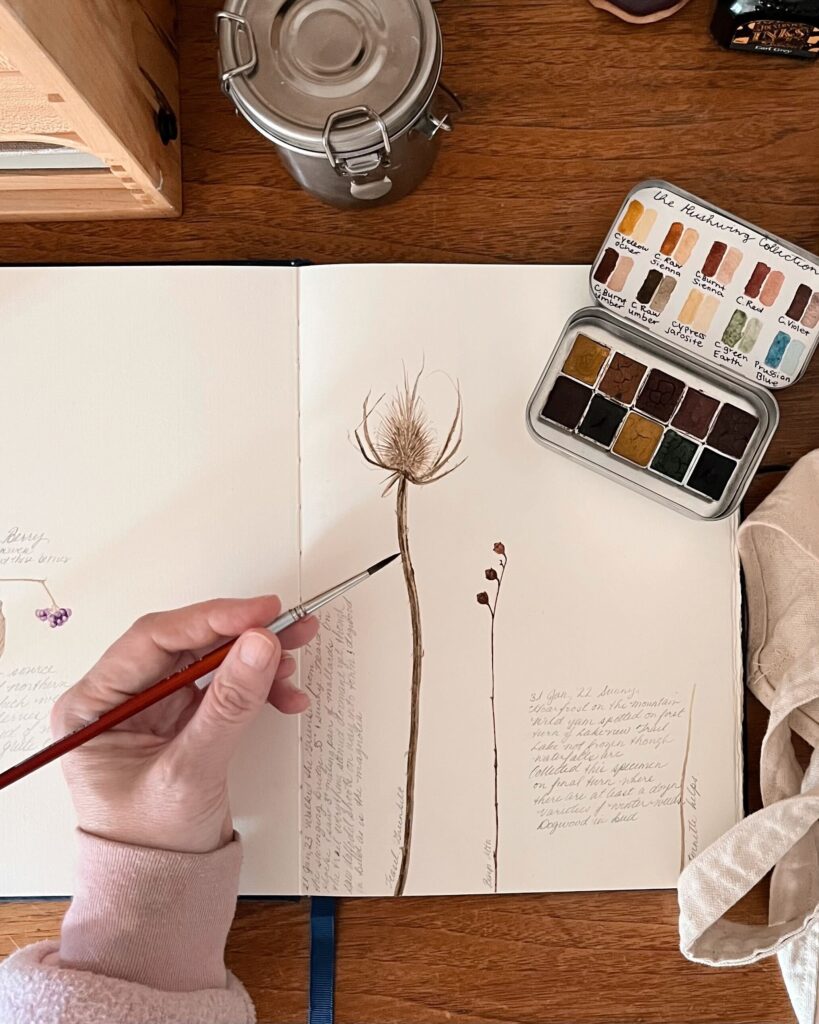
This teasel was as tall as me and I hope to go back in summer to capture its purple inflorescence. Their seeds are a favorite winter food of finches and I was able to spot a male goldfinch in his winter coat atop a seed head.
Winter wildflowers have such a striking architectural quality about them. Have any made it into your nature journal?
@rbaburina
January 26, 2023
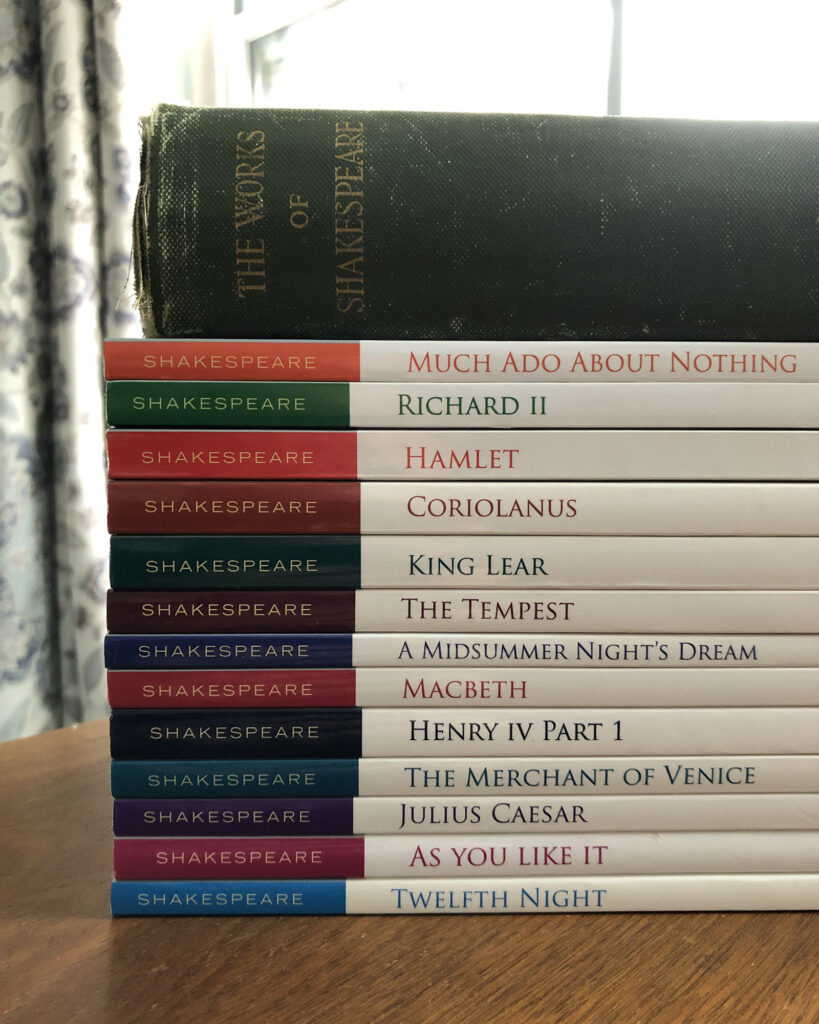
“It is quite a mistake to think that children do not get interested in the great plays,” wrote Arthur Burrell. “But it is quite true that they want something more than the play; they want the story brought vividly before them.”
Burrell was the author of Recitation: A Handbook for Teachers, a book which according to Charlotte Mason was more or less the last word on the subject. He wrote for the Parents’ Review and read Mason’s essays to audiences at PNEU conferences. And he knew a thing or two about Shakespeare, whom he referred to as “the first dramatic poet in the world.”
“Straightway there comes to one of the actors in the scene some thought which hinges but slightly on the incident or accident, and Shakspeare soars,” explained Burrell. “The theatre is gone, the world is left; out come high burning words; the poet’s pen has seized upon the things unknown; the poet’s eye has left the earth and glanced at heaven. For these flights the reader requires a corresponding voice-inflection; he is no longer reading to friends, or to an audience; he is lifted above himself; and if he realises the inward exultation that the poet must have felt, his hearers will share that exultation with him.”
When A. W. Tozer tried to understand the works of Shakespeare, “he read them through on his knees, asking God to help him understand their meaning.” Perhaps there is an easier way. Roma Gill wrote that “easily the best way to understand and appreciate Shakespeare’s verse is to read it aloud.” I think Burrell would have agreed.
I don’t read Shakespare on my knees. I read it with my voice and with my ears, as I hear son, daughter, and bride each play a part. Weeks of family read-alouds have turned into months which have turned into years. And from time to time, as with the poet’s eye, our eyes left the earth and glanced at heaven too.
@artmiddlekauff
January 27, 2023

I don’t know why, after having lived a whole life in very wintery winters, we have never thought of riding a bike in the snow!
Serafina was looking for something different to do and she thought “why not”?
They do make special “fat tires” for biking on snow. But she did it with her regular tires. Granted, there wasn’t any freshly fallen snow, so the roads here on campus had snow that was really packed down.
She had no trouble at all. And she quite enjoyed herself!
Our recommendation is to try it out on a not-windy day. 😀
Does your family do snowy bike rides?
@antonella.f.greco
January 28, 2023
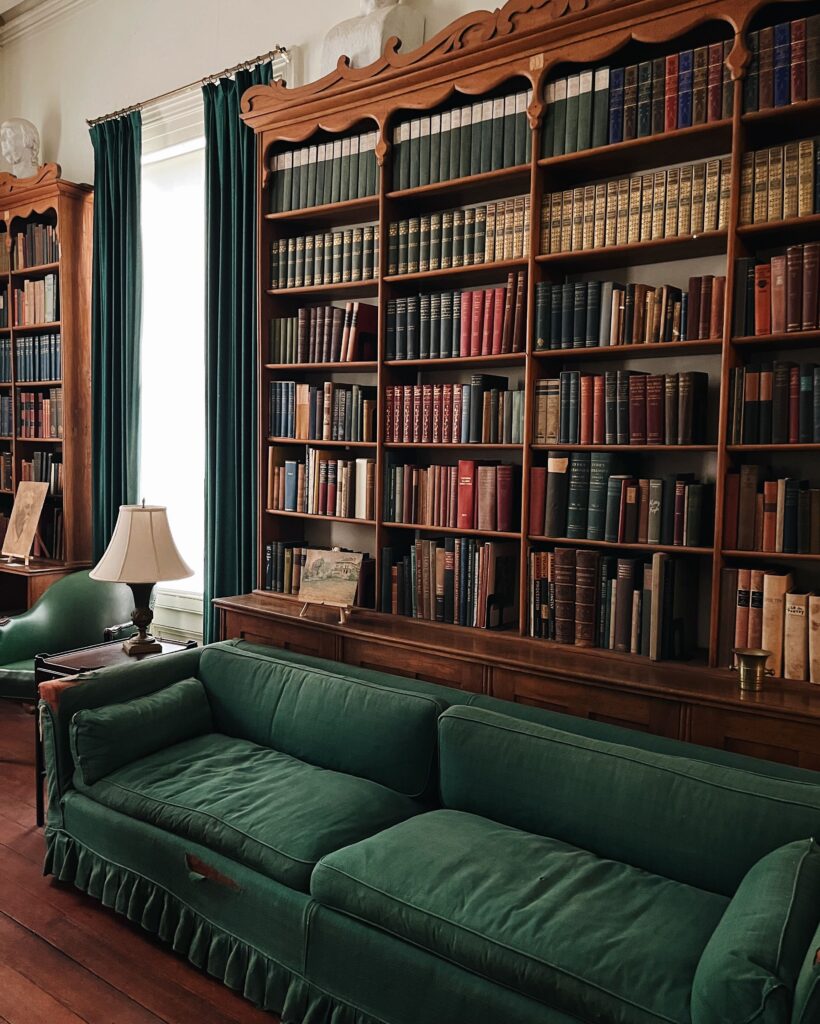
“Needs of body, needs of mind, e.g., food, warmth, healing – love, justice, hope, companionship, security, etc., etc. A long list –do you notice that in a really happy home they all get attention? Not all at once, all the time, but each need gets answered, some time, in some way. We are in need and we feel a desire, we want something deeply, passionately – affection, notice, a friend, quiet, whatever it may be. Our needs are the ground of our human nature from which our thoughts, hopes, fears and joys grow up. Children are especially needy people. That is why Fathers and Mothers must be peacemakers, must give loving thought and care in order that the children may have their four great needs supplied – Leadership, Healing, Feeding, and Teaching.” (Essex Cholmondeley, Parents Are Peacemakers)
@tessakeath
January 29, 2023
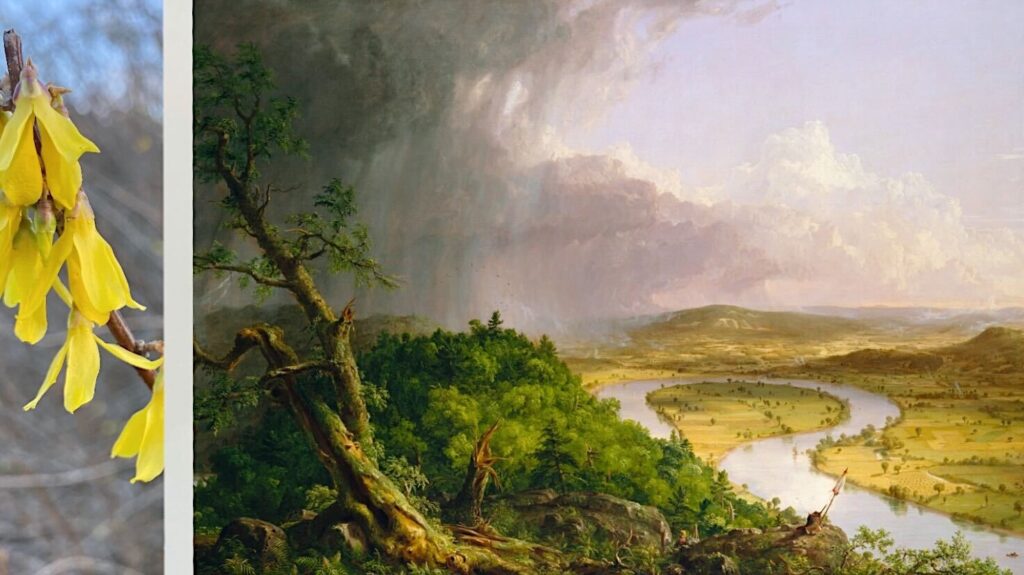
The book of Ezekiel is filled with images, some disturbing, some confusing, and some mysterious. It is filled with symbols, some clear, some opaque, and some convicting. It is filled with intricate descriptions of buildings, a temple, and an altar, and a measurement of land. But then towards the end of the book the reader encounters an image which, to me, can only be described as beautiful.
After reading about the rules for entering the vast new temple yet to be seen on earth, and how the gate facing east is to be opened for the prince, we read how Ezekiel saw something truly marvelous: water began to flow from the temple to the east. It became a river! And “Along the bank of the river, on this side and that, will grow all kinds of trees used for food; their leaves will not wither, and their fruit will not fail.”
Charlotte Mason’s students read the book of Ezekiel in Forms V and VI. They were told to read the accompanying comments by John R. Dummelow. His statement about the river from the temple is striking: “To Ezekiel this river was not a mere symbol of spiritual refreshment. The perfect kingdom of God still presented itself to him in an earthly form, accompanied by outward fertility and other material blessings.”
In her own way, Mason too felt that this was no symbol. She felt that the living water was real. “Ideas emanating from our Lord and Saviour, which are of His essence, are the spiritual meat and drink of His believing people,” she wrote.
Back in 2016 I was asked to select three poems by Miss Mason to include in a conference notebook. This poem was the third. Yes, the river from the temple is real, in more ways than one. Read or hear Mason’s poem at this link.
@artmiddlekauff